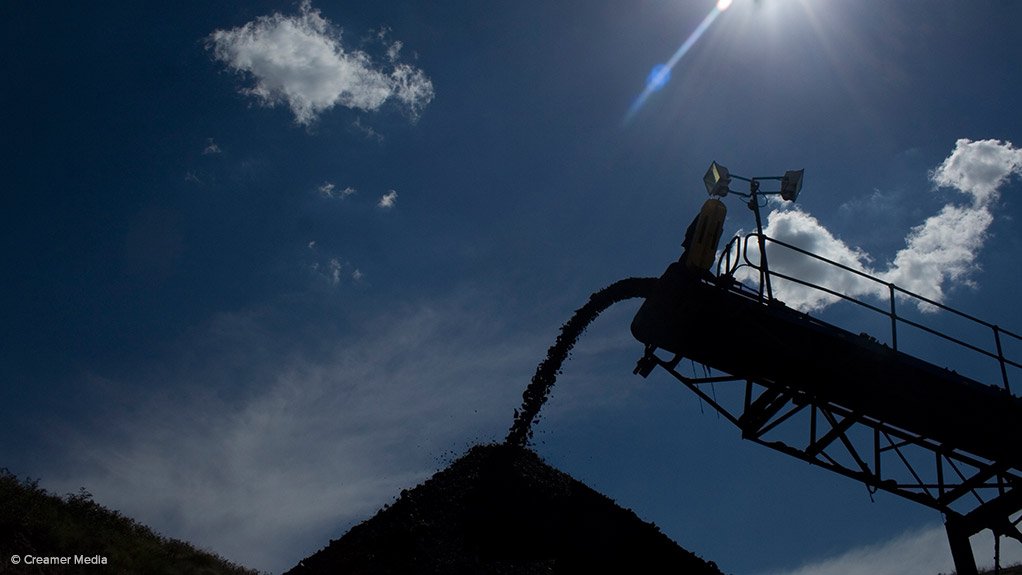The sharp decline in commodity prices is, on balance, negative for the outlook for the South African rand, new bank research shows, with lower oil prices being more than offset by lower mineral and metals prices.
Standard Bank head of South African research Walter de Wet highlights that crude oil and petroleum imports make up about 20% of total physical-goods imports, which is far less than the proportion of commodity exports in South Africa’s total export basket. Metals and mineral commodity exports, such as coal, gold, iron-ore and platinum, account for around 53% of the country’s physical-goods exports.
“A simple rule of thumb would be that for the terms of trade to remain unchanged, the fall in oil prices would have to be two-and-a-half times the fall in the prices of the commodities we export,” De Wet explains, adding that in, many instances, the price of the commodities exported by South Africa has fallen more steeply than has been the case for oil during 2015.
A recent World Bank report forecasts that all main commodity price indices will decline in 2015, owing to abundant supplies and, in the case of industrial commodities, weak demand.
The July Commodity Markets Outlook is particularly pessimistic about the outlook for metals prices, which are now projected to decline 17%, instead of the 12% forecast in April; a result of capacity increases and slowing Chinese demand. The largest decline is expected for iron-ore, where a 46% slump is anticipated, owing to new low-cost mining capacity coming online, mainly in Australia.
However, the World Bank has revised upwards an earlier oil price projection for the year to $57/bl from the $53/bl level forecast in April. Nevertheless, energy prices are still projected to average 39% below 2014 levels, which was largely attributable to the drop in oil prices.
The weak outlook for commodities will also weigh on South Africa’s current account and growth outlook, with Standard Bank forecasting 2015 growth of only 2% and an even weaker 1.7% for 2016.
De Wet says the negative impact of South Africa’s persistent current-account deficit on the rand-dollar exchange rate is at its highest level since at least 1998, arguing that this sensitivity to the deficit may already be responsible for as much as R2.50 of the depreciation against the greenback since September 2010.
The country has been running a current-account deficit for a decade and, while the deficit as a percentage of gross domestic product shrank to 4.8% in the first quarter and is expected to shrink again in the second, the outlook is less promising, despite rand weakness.
Standard Bank is forecasting current-account deficits of 5.2% and 5.3% for 2015 and 2016 respectively, with South Africa’s weakened terms of trade as a result of the fall in commodity prices unlikely to be offset by a possible rise in the export of manufactured products.
“The developments that we are seeing in the commodity markets are not good for our trade balance and terms of trade,” De Wet explains.
“Combined with the fact that we still have electricity constraints, low global growth and relatively low domestic demand our view is that we will probably see dividends flowing out [of South Africa] as opposed to people reinvesting in the economy to build capacity, which will put even more pressure on the income-account transfers.”
Standard Bank also expects the South African Reserve Bank (SARB), which moved to hike interest rates by 25 basis points at its Monetary Policy Committee meeting in July, to hold off on further hikes until the second half of 2016.
De Wet believes the SARB will only move to hike rates more aggressively if there is an uncontrollable sell-off in the rand, which has emerged as the “single biggest” risk to inflation.
EMAIL THIS ARTICLE SAVE THIS ARTICLE
To subscribe email subscriptions@creamermedia.co.za or click here
To advertise email advertising@creamermedia.co.za or click here











